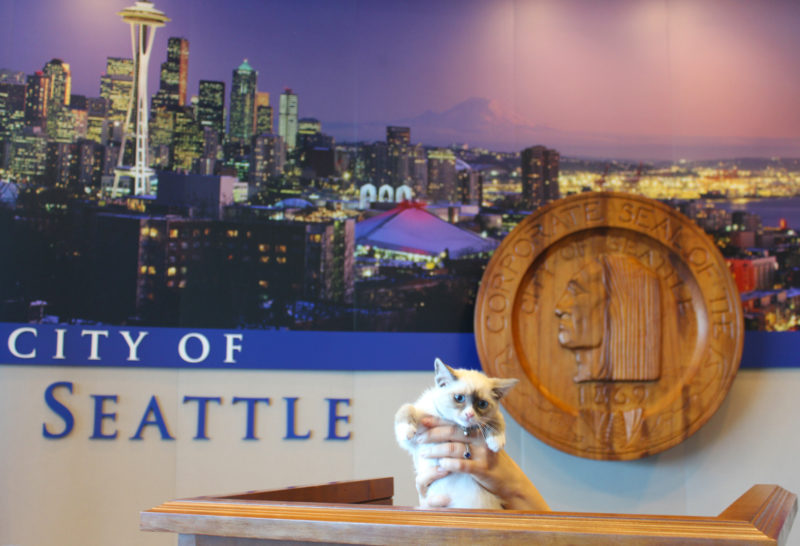Kristin E.
I just read Raising the Floor: How a Universal Basic Income Can Renew Our Economy and Rebuild the American Dream by former SEIU president Andy Stern. I highly, highly recommend. After successfully organizing Labor, Stern started to feel concerned about the future of Labor, so he spent years asking economists, labor leaders, DEOs, and entrepreneurs about how the economy is working now and will work in the future, and concluded that we need a Universal Basic Income. Stern writes from the perspective of a lifelong labor organizer, but peppers the book with quotes and anecdotes from many other perspectives. A few select quotes:
“In 1950s and 1960s, CEOS had 5 priorities, and the following order: making a great product, taking care of customers, keeping their employees happy, and growing the business, getting a nice return for their shareholders. That’s not true now. Shareholder return trumps everything, which means keeping your costs, including labor, as low as possible.”
“We built a whole social structure based on the concept of a job, and that concept doesn’t work anymore.”
“Universal basic income doesn’t lower the ceiling on what a person can earn; it simply raises the floor.”
“Universal basic income gives all the participants in the market real options. Right now, too many people in the labor market don’t have options.”
“As a result, we need crutches like the minimum wage and unemployment insurance, and we end up regulating the market in a way that discourages activity. Universal basic income would give people bargaining power and leverage; they wouldn’t have to accept a bad job just to put a roof over their family’s heads.”
With his usual eloquence, Bill McKibben makes the case that we need to declare war on climate change. Not like “war on drugs” and “war on poverty,” but literally war. World War III. He says the US won WWII (and improved racial and gender equality, to boot) in no small part due to “wholesale industrial retooling” and we should do the same now, building 30 solar panel factories and 25 wind turbine factories every year to create middle-class jobs and churn out a gigawatt apiece of clean energy producing equipment each year until we get to 100 percent renewable power, as Stanford researcher Mark Jacobson has said we could. (Here is Jacobson’s 100% renewable plan for Oregon and Washington.)
And David Roberts’ praise and criticism of McKibben’s war analogy. He argues the Left can’t mobilize a war effort alone; we need the Center and the Right, too.
Gallup study of 87,000 Americans indicates that Trump supporters might not themselves be experiencing acute economic distress, but they are living in places that are distressed. Their communities are more likely to lack economic opportunity for the next generation; children not only don’t surpass their parents, but struggle just to do as well as their parents in adulthood. They live in places where people are less healthy and more likely to die young. They are also less likely to have met an immigrant because they live in places that are less diverse.
Kelsey
I would not classify myself as a ‘foodie’ (mainly because I’m still unsure what that term really means), but I am most certainly someone who spends a lot of time cooking and reading about food. I lean heavily on Grist to deliver current food sustainability news, Peter Singer for his eloquent novels on animal rights, and then a variety of cookbooks to keep my meals interesting. Last week I stumbled upon a food blog called Afroculinaria, which explores the intersection of Black history and food. In this blog, author Michael W. Twitty has challenged himself with “preparing, preserving and promoting African American foodways and its parent traditions in Africa and her Diaspora and its legacy in the food culture of the American South.” Originally hailing from the South, his recent post Southern or Soul? struck a chord with me.
Since I mentioned cookbooks, here are my favorites: Afro-Vegan, River Cottage Veg, and 660 Curries.
Cute animal alert! In one week Seattle City Hall will be transformed into Kitty Hall! From 11:30am-1:30pm on August 25th, City Hall will be filled with fabulous felines from the Seattle Animal Shelter for the public to pet, play with, and adopt. If you aren’t clearing your calendar already here is a teaser: “Our Kitty Hall event will see the return of the much loved kitten tent, where folks can cuddle and play with a handful of kittens.” Devote your lunch break to playing with shelter cats—it’s sure to be a purr-fect event!
Serena
In a life and place far removed from coal mining, it’s perhaps easier for someone like me to imagine and cheer on the transition coal workers could make from dirty energy jobs to clean. Not so fast, says an Appalachian native and student of American migration trends, noting compelling economic and cultural barriers to such a shift.
Another zero waste thrill since my deodorant-making adventures a few weeks ago: finding a local shop that carries oodles of bulk necessities. My QFC checker tipped me off yesterday evening to Rainbow Natural Remedies, just blocks from my home (hooray for thriving, walkable, dense neighborhoods!). I walked right over and nabbed some cocoa and shea butters for some homemade lotion recipes, and the clerk helpfully pre-weighed my containers so I could carry them home waste-free. Fellow Northwesties, where do you find your bulk treasures? Let me (and more importantly, others!) know in the comments thread.
The views expressed in this article are those of the contributing individuals and not necessarily those of Sightline Institute. Sightline does not endorse any candidates, and any commentary presented here is as a public service in the interest of informing the public.

